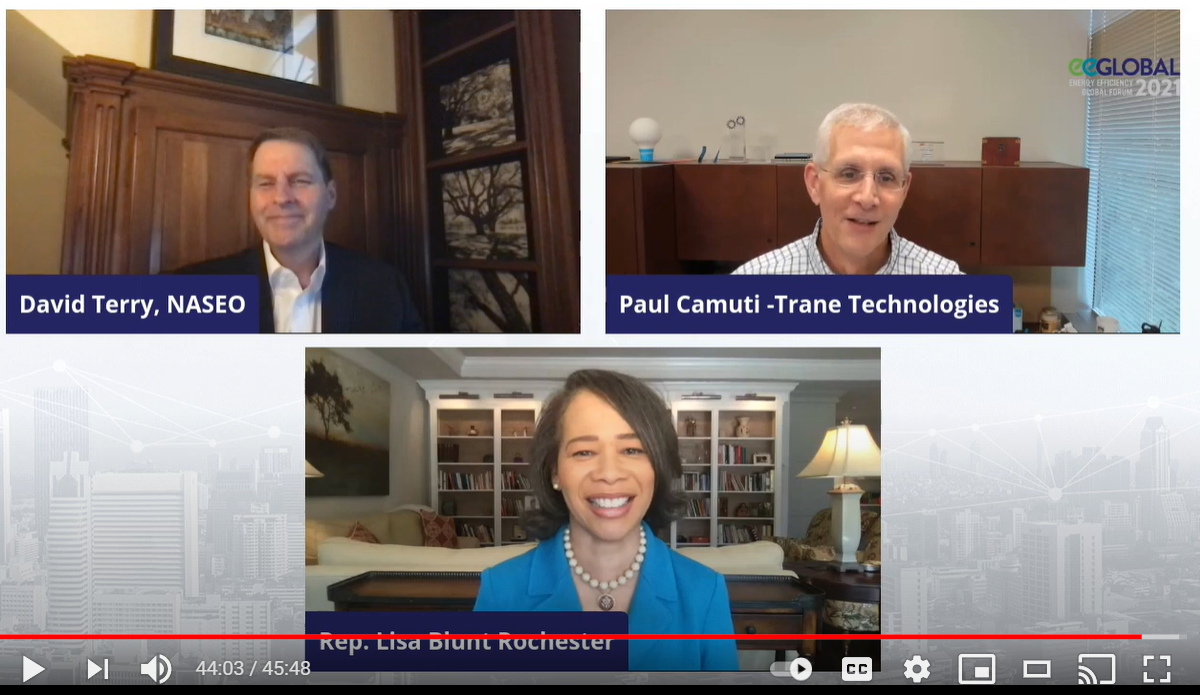Congress Needs to Extend These Energy Efficiency Tax Credits
Let's Save Energy
Alliance to Save Energy's Blog
Congress Needs to Extend These Energy Efficiency Tax Credits

On December 18, the Alliance to Save Energy and 30 other organizations sent a letter to the Senate Finance Committee and the House Ways and Means Committee urging Congress to extend critical energy efficiency tax incentives that are currently set to expire on December 31, 2013.
Energy efficiency tax credits are a key policy for helping to achieve the Alliance’s goal of doubling U.S. energy productivity by 2030. Efficiency upgrades have proved to be an effective means to help consumers overcome the upfront costs associated with otherwise cost-effective efficiency improvements. Until Congress undertakes comprehensive tax code reform, extending these credits will ensure that we do more with less (energy) to the betterment of our economy, national security and environment.
Specifically, the letter asks that Congress extend the following energy efficiency tax incentives to benefit America’s families and businesses:
- Section 25C Non-Business Energy Property Credit – The Non-Business Energy Property Credit helps homeowners improve the energy efficiency of their homes. This credit benefits consumers directly by helping to defray the upfront costs of residential efficiency retrofits, helping to create domestic jobs while saving homeowners money on their energy bills. The improvements eligible for this tax credit include upgrades to building components like insulation, windows, and roofs as well as equipment like air conditioners, furnaces and water heaters.
- Section 179D Commercial Building Tax Deduction – The Commercial Building Tax Deduction motivates private building owners and public building designers to reduce energy use in commercial buildings. With over 4.8 million commercial and other non-residential buildings in the United States, spending a total of more than $100 billion every year on energy costs, energy efficient new construction and retrofits can result in significant savings for U.S. businesses.
- Section 45L Efficient New Homes Tax Credit – The New Energy Efficient Home Credit promotes the construction of highly-efficient new homes that create jobs in America’s housing industry while saving homeowners money on their energy bills.
- Section 45M Efficient Appliances Manufacturer Tax Credit – The Efficient Appliances Manufacturer Tax Credit promotes the manufacture of high-efficiency appliances, including washers and refrigerators.
- Section 132(f) Transportation Fringe Benefits – Originally enacted in 2009 as part of bipartisan legislation, this credit helped cut commuting costs by establishing parity with the tax-free parking benefits available to commuters who drive. More than 2.7 million Americans nationwide utilized the transit benefit, with over one third of those users spending more than $125 per month. This benefit impacts employers and employees immediately and reduces their tax liability, resulting in sound fiscal savings for both.
The Alliance will continue to work with Congressional staff, our partners on this letter, and other stakeholders to energy efficiency and tax reform. The text of the letter can be found here.
STAY EMPOWERED
Help the Alliance advocate for policies to use energy more efficiently – supporting job creation, reduced emissions, and lower costs. Contact your member of Congress.
Energy efficiency is smart, nonpartisan, and practical. So are we. Our strength comes from an unparalleled group of Alliance Associates working collaboratively under the Alliance umbrella to pave the way for energy efficiency gains.
The power of efficiency is in your hands. Supporting the Alliance means supporting a vision for using energy more productively to achieve economic growth, a cleaner environment, and greater energy security, affordability, and reliability.



